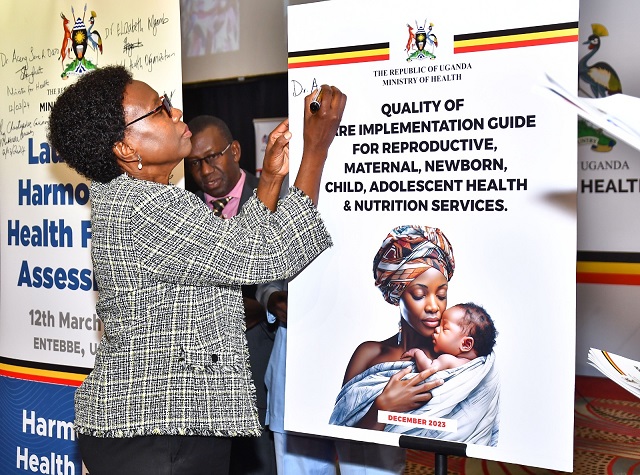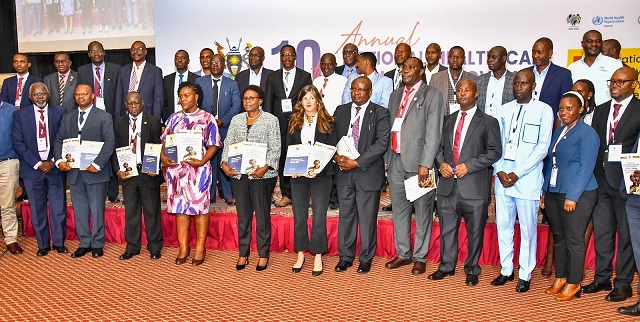
Wakiso, Uganda | THE INDEPENDENT | The enhancement of remuneration for health workers has not translated into improved healthcare service delivery, the Minister of Health Dr. Jane Ruth Aceng.
Speaking at the tenth annual conference on healthcare quality improvement on Tuesday, Aceng said that it had been hoped that the salary enhancement for medical workers would result in better service but “unfortunately salary enhancement is not translating into better health service.”
In 2022, the government increased the salary of medical workers by 100 percent.
A senior medical consultant earns 17.4 million shillings up from 7.3 million shillings, a medical consultant 12.7 million shillings, and a principal medical officer 8 million up from 4.5 million shillings. An enrolled nurse bags 1.3 million up from 613,000 shillings.
The conference held at Imperial Royale Hotel – Entebbe brought together top ministry leadership, regional and district healthcare leaders, academics, researchers, innovators, donors and civil society.
Under the theme: Innovations to Strengthen Healthcare Systems for Delivery of Quality HealthCare in Resource-Limited Settings, the conference takes stock of systems and models and informs what needs to be dropped, strengthened and or improved for better results.
Participants at the annual conference share experiences with a view to overall registering quality improvement. The government three years ago launched a ten-year strategic plan that ends in 2030 with expected results being the achievement of universal healthcare coverage, focusing on access, quality and affordability.
Aceng said the year 2030 should not be looked at as a magic year when people are not doing what they are supposed to or are expected to do.
She urged medical workers to do more to ensure better results for the final consumer – the patient.
She said there was a lot of wastage of resources in the country and all this had to be addressed with accountability and commitment, even with the limited resources.

Dr Jessica Healey from USAID commended the strides by Uganda in healthcare service delivery but expressed concern the recently passed Anti-homosexuality law enacted risked reversal as sections of patients would develop fear of seeking help.
Dr Elizabeth Mgamb who represented Dr Yonas Tegegn Woldermariam, the WHO country representative commended the aggregated approach by all players working within existing systems, saying it does not leave a vacuum when a partner pulls out later.
She called the conference a point of reflection at which participants’ focus should be on improving systems to build resilience.
During the occasion, the minister launched two tools, the Harmonised Healthcare Facility Assessment Guide and the Guide for Implementation of Quality Reproductive Maternal, Newborn and Adolescent Health and Nutrition Services. She commended development partners including USAID, JICA and WHO.
******
URN
 The Independent Uganda: You get the Truth we Pay the Price
The Independent Uganda: You get the Truth we Pay the Price





